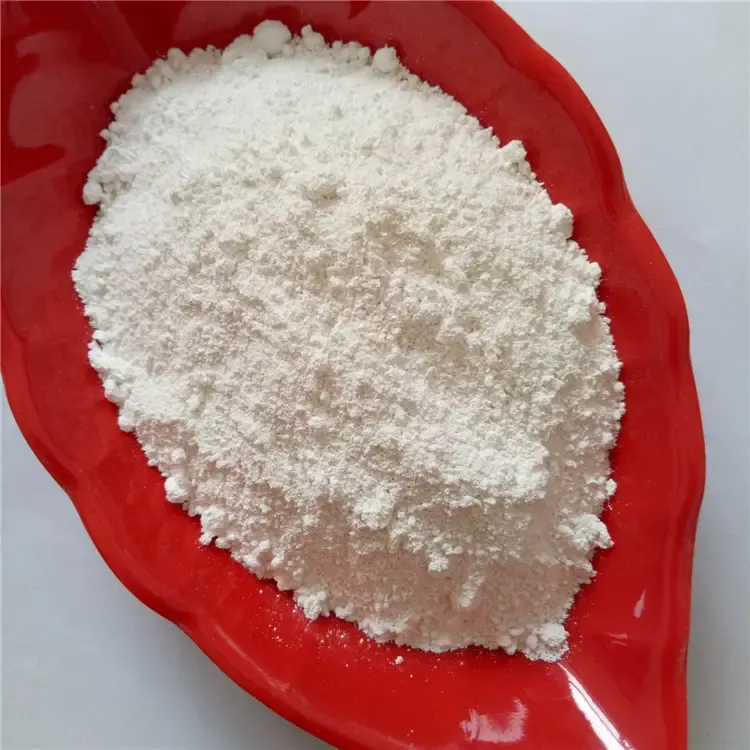
Th12 . 05, 2024 14:59 Back to list
color of baso4 manufacturer
The Color of BaSO4 Understanding the Role of Manufacturers
Barium sulfate (BaSO4) is a chemical compound that holds significant importance in various industries, including paint, plastics, pharmaceuticals, and more. Its versatility and utility stem from its unique physical and chemical properties, one of which is its color. The color of BaSO4 can vary based on several factors, and understanding these can provide insights into the manufacturing processes and applications of this compound.
The Basic Properties of Barium Sulfate
Barium sulfate is a white crystalline powder, primarily known for its high density, excellent chemical stability, and low solubility in water. These characteristics make it invaluable for a range of applications, such as in the production of paints and coatings, where it serves as a pigment and filler. However, when we talk about color in the context of BaSO4, we also need to consider impurities and the manufacturing process, as these can significantly influence its appearance.
The Impact of Impurities
In its pure form, BaSO4 is a bright white powder. However, the presence of impurities or variations in production methods can alter its color. Manufacturers often work with raw barium minerals that may contain trace elements, leading to variations from the standard white color. For instance, the presence of iron can impart a yellowish hue, while organic contaminants could result in shades of gray or brown. This underscores the importance of quality control in the manufacturing process, as different applications may require specific color parameters.
Manufacturing Processes
The production of barium sulfate typically involves processes like precipitation and crystallization. In the precipitation method, barium chloride (BaCl2) is reacted with sodium sulfate (Na2SO4). The resulting barium sulfate precipitates out of solution and is then purified. The condition under which these reactions occur—such as temperature, concentration, and the presence of other chemicals—can further influence the color and quality of the final product.
color of baso4 manufacturer

Manufacturers are increasingly adopting advanced techniques to ensure a higher level of purity and consistency. The use of high-purity reagents and controlled environments during the synthesis process can minimize the introduction of contaminants, resulting in a product that maintains the desired white color. This is critical for industries, such as the cosmetics and pharmaceutical sectors, where color consistency can affect product quality and consumer perception.
The Role of Manufacturers in Color Consistency
Manufacturers of BaSO4 play a crucial role in ensuring that the final product meets the color specifications required for various applications. This involves rigorous testing and adherence to industry standards. Many manufacturers employ color measurement technologies, such as spectrophotometers, to assess the color of their products quantitatively. This allows them to maintain high levels of quality control and provide clients with materials that conform to their color requirements.
Additionally, some manufacturers also offer different grades of BaSO4, each designed for specific applications. For instance, “coated” barium sulfate, treated with surfactants, may exhibit different optical properties than standard grades, and can appear less white but offer improved dispersion in plastics and paints. This adaptability allows manufacturers to cater to a diverse range of industries, emphasizing the significance of understanding color dynamics in BaSO4 production.
Conclusion
The color of BaSO4 is more than a mere aesthetic attribute; it reflects the intricacies of the manufacturing process and the purity of the compound. As manufacturers strive for higher purity and consistency, the implications for various industries become evident—especially where product appearance can influence consumer acceptance.
Ultimately, the interplay between raw materials, manufacturing processes, and quality control measures shapes the characteristics of barium sulfate that end users experience. By focusing on these elements, manufacturers not only enhance the quality of their BaSO4 products but also the satisfaction of their clients across myriad applications. As industries continue to evolve, the demand for high-quality, stable, and consistent BaSO4 will likely grow, emphasizing the importance of color management in its production.
-
China Lithopone in China Supplier – High Quality Lithopone ZnS 30% Powder for Wholesale
NewsJun.10,2025
-
Top China Titanium Dioxide Company – Premium TiO2 Powder Supplier & Manufacturer
NewsJun.10,2025
-
Fast Shipping 99% Pure TiO2 Powder CAS 13463-67-7 Bulk Wholesale
NewsJun.10,2025
-
Top China Titanium Dioxide Manufacturers High-Purity R996 & Anatase
NewsJun.10,2025
-
Lithopone MSDS Factories - Production & Quotes
NewsJun.10,2025
-
High-Quality Titanium Dioxide in Water Suppliers - China Expertise 60
NewsJun.09,2025
